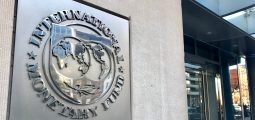Blythe Masters: The Risks of Spreading the Risk
 Out of a tragic oil spill came forth a new financial instrument: The credit default swap – to some a financial weapon of mass destruction; to others a nifty way to spread, and thus diminish, credit risk.
Out of a tragic oil spill came forth a new financial instrument: The credit default swap – to some a financial weapon of mass destruction; to others a nifty way to spread, and thus diminish, credit risk.
The credit default swap sprung from the brain of Blythe Masters, at the time one of the most promising bankers at JP Morgan. The US investment bank sensed trouble when Exxon was facing up to $5bn in punitive damages for the Valdez oil spill which saw up to 750,000 barrels worth of crude oil leak into the pristine water of the Prince William Sound in Alaska.
As it happened, JP Morgan had extended some $4.8bn in credit to Exxon. A team of wizard bankers was duly convened and went to work finding a solution to the risk. Mrs Masters suggested selling the credit risk of these loans to reduce the JP Morgan’s exposure to an Exxon default and – as an added bonus – reduce the volume of reserves the bank was required to carry.
“They are only as good as those who manage them.”
– Blythe Masters on credit default swaps
A dupe of sorts was found in the European Bank of Reconstruction and Development. Following this, the Exxon loans were sliced into more manageable packages which found their way onto the market – and off JP Morgan’s books – as Broad Index Secured Trust Offerings, BISTROs for short. These were the first-ever investment vehicles specifically aimed at spreading a greater than acceptable financial risk over a large number of investors who are led to believe that they are acquiring prime rate securities.
While a great way for banks to make money without the attendant risk, Mrs Masters later admitted that the credit default swaps she invented might have been structured differently in order to avoid an increase in systemic risk. Mrs Masters told an investigative committee of the European Parliament in April 2010 that the recent financial meltdown indeed contains “valuable lessons”.
However, Mrs Masters maintains that credit default swaps do not deserve the blame they have been apportioned: “They are only as good as those who manage them”. Most bankers would agree and consider CDSs as manna from heaven. Just before the 2008 meltdown, the total amount of outstanding CDSs approached an astonishing $65tn. That number has now fallen to about $25tn but has been picking up as of late.
Mrs Masters is quite right in asserting that managing credit default swaps requires expertise and good sense. Both were lacking in Bruno Iksil, a trader for JP Morgan who became known as the London Whale for the huge iffy positions he had taken. These triggered heavy opposition from other traders betting on the whale’s sinking. Even other JP Morgan traders happily joined the party. The bank eventually lost about $2bn, demonstrating yet again the folly of markets unleashed and unbound.
You may have an interest in also reading…
World Bank Group: Remittances – A Vital Channel for Global Cash Flows
Envision the world economy as a complex, interconnected array of financial engines whose propulsion helps reinforce one another’s momentum. One
UNCDF: A Roadmap for Financial Inclusion
Nephathli is a man from Lesotho, formerly a mineworker in South Africa. His family’s main source of income is the
SABIC’s Collaboration with MIT
The Saudi Basic Industries Corporation (SABIC) has signed an initial agreement with Massachusetts Institute of Technology (MIT) in the United




























































































